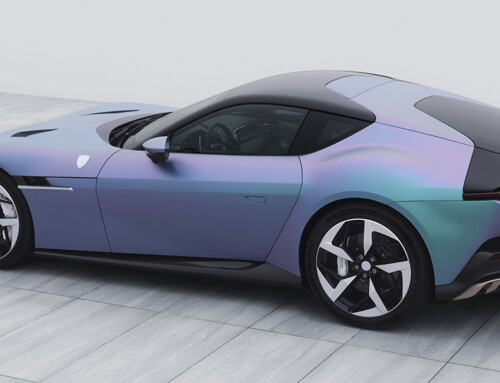The Royal College of Art (RCA) has announced the winners of the third edition of the Hyundai Awards for Excellence in Sustainability and Creative Practice. The awards celebrate art and design projects that challenge current societal norms, suggest solutions, or provoke emotions in the face of climate change and sustainability challenges. RCA students graduating in 2025 were invited to contribute in three categories: Inspiration, Innovation, and Aesthetics and Craftsmanship. The winners were selected by a jury of experts that included Peter Schreyer, Executive Design Advisor at Hyundai Motor Group, representatives from Hyundai brands, and Professor Dale Harrow, Chair of Intelligent Mobility at the RCA.
The Inspiration Award, given for responses to climate change and sustainability, was awarded to Ramaa Rajesh Sahasrabuddhe (MA Information Experience Design, 2025) for Soil Memory.
Soil Memory is an audio-tactile experience that explores how crucial historical events have shaped the quality of soil in London. It is presented as a timeline of interwoven earth tapestries and invites the audience to interact with and embody the memory of the soil. The work creates a tactile experience that embodies the look, feel, and texture of soil. Pieces of thread and fabric are woven together to form six ‘earth tapestries’, accompanied by an audio narrative that connects and tells the stories of the pieces, creating empathy with the natural world around us.
The award for the Innovation category, intended for projects that propose artistic or design solutions to make the world more sustainable, was given to Arabella Calla (MA Design Products, 2025) for Sweet Cheeks Nappies
Sweet Cheeks Nappies is a regenerative hybrid system designed to address the environmental crisis caused by diaper waste and toxic chemicals found in conventional diapers, such as SAP, polypropylene, and polyethylene, which pose a health risk to infants. Each disposable insert is made entirely from biodegradable, skin-safe, natural materials, including agricultural waste fibers and two other plant-based ingredients that are patent pending. Unlike conventional diapers that use petroleum-derived plastics and SAP, Sweet Cheeks uses no synthetic materials, chemicals, or plastics and decomposes into fertilizer.
The Aesthetics & Craft Award, dedicated to stylistic practices that explore the theme of sustainability, was awarded to Adriette Myburgh (MA Sculpture, 2025) for Vanishing Point to Invert the World through Six Apples
This work is a sculptural installation and a thought experiment. It poses the question: if we can imagine the energy generated by six apples and two oranges, through symbolic transformation rather than extraction, then we already possess the cognitive tools to rethink sustainability from scratch. Through sculpture, installation, and schematic drawing, the work configures alternative plans for a more responsive and responsible future. If we admit that even something as ordinary as six apples has the potential for infinite transformation, then the question is no longer how to extract more, but how to think differently: how to reorganize energy, matter, and value so that their force is directed toward renewal rather than depletion. This change requires new ecologies of thought as much as new technologies of production.













